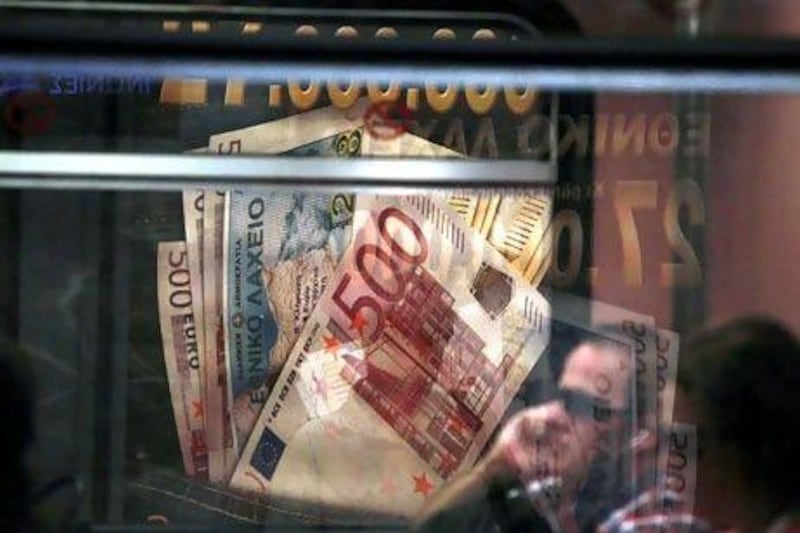In the long, drawn out course of the economic downturn we have been wading through for the past five years, certain themes have come to dominate each quarter of decline.
In the early days we had house-price bubbles that burst, stock prices that crashed, credit markets that froze and entire nations that spiralled out of control. Each one in turn led the markets and the headlines into a frenzy until it was relegated by the next thematic leap.
More recently, in the first quarter of this year, the dominant theme was surely the euro zone's decline that continues to spur anticipation of a Greek exit from the currency bloc - which we are asked to call a "Grexit" - and the possibility of Spain doing the same - a "Spexit".
As the second quarter of the year struggles into its final weeks it appears that, far from the recovery that was threatening to become a theme, at least in the United States, "collapse" has returned to the fore.
And just as we saw in the earliest days of the crisis, when Lehman Brothers went bust triggering a domino effect of failures in the banking industry and wider economy, a collapse rarely comes to the party alone.
Invariably it will bring a ragtag band of hangers on and gatecrashers who will dominate events, drown out any fun you planned and leave a nasty mess to clean up in the morning.
The collapse last week of Hastie Group, a big Australian construction engineering company, was a major blow and not just on its home turf. More than 2,000 jobs in the Middle East are expected to be hit.
The share price of Research In Motion, the maker of the once ubiquitous BlackBerry, was the next to suffer an ignominious collapse that it had been trying to stave off since a change of senior management at the start of the year. Last Wednesday the stock hit a 12-month low and the future looks pretty bleak.
These collapses both pale, meanwhile, next to the virtual implosion of Bankia, Spain's third-biggest banking group that needs as much as €19 billion (Dh86.78bn) to stave off its decline. These events seem on face value entirely unconnected - and in many ways they are.
Certainly they have less in common than two macro economic declines that occurred in tandem last week - that of the US employment recovery and of the price of oil. But there is a link between all these seemingly disparate events and it is the biggest collapse of them all.
The collapse of positive sentiment in almost every corner of the global economy - even China where manufacturing growth is slowing month by month - is the one that will eventually cover us all in rubble.
The real evidence for the return of ill will in such force can clearly be seen in the bond markets.
Last Wednesday, government debt traders all over the world were gripped by panic. Yields on US, UK and German debt were all driven to historic lows. The reason for such a rush into UK and US government debt, even if returns are virtually nonexistent, is clear. These bonds are the safest in the market as the United States and the United Kingdom have command of their currencies. The German Bund play, meanwhile, is interpreted by some as a hedge against the death of the euro as Germany is likely to be one of the few member country's left standing if the currency implodes.
What is clear is the collapses we have seen over the past couple of months are getting bigger and more serious the one to the next. And you can't escape the feeling that we ain't seen nothing yet.
The candidates for such a big collapse are few and fairly obvious. The euro is the lead contender with Chinese growth up there in second place. If either of those two goes the price of oil will doubtless follow.
A collapse of all three together, meanwhile, will give a whole new meaning to the word.
twitter: Follow and share our breaking business news. Follow us
iPad users can follow our twitterfeed via Flipboard - just search for Ind_Insights on the app.





